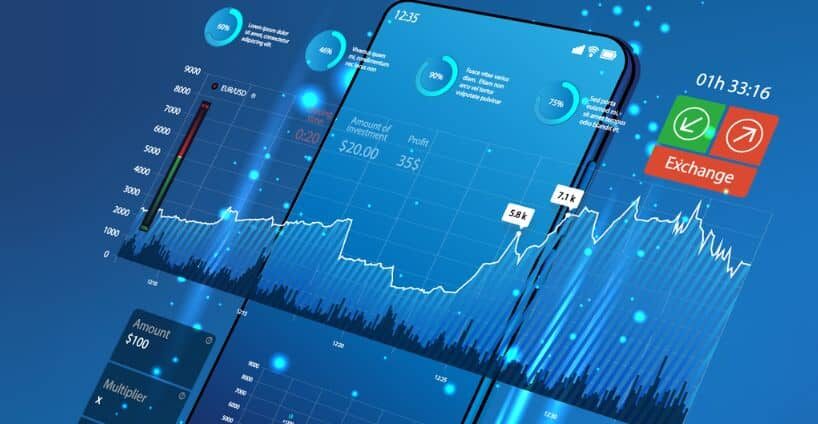Cybersecurity and forex trading in New Zealand: risks and precautions

To begin with, Forex trading is a financial market that involves buying and selling foreign currencies. This market is open for worldwide traders who buy currencies to sell them to gain a profit eventually. They trade with traders or other investors to profit from price stabilization trends.
Forex trading is primarily related to the stock market in one way or another. However, unlike stocks, buying a company and hoping for dividends is impossible. Despite this specific feature in mind, currency brokers have grown exponentially in recent times as people are looking at new, non-declining investment methods, such as the increased risk of bureaucracy that wastes time.
Forex trading in New Zealand is getting broad acceptance by traders and investors. This trading type is very simple and involves various international currencies, such as GBP, NZD, EUR, USD, AUD, etc., for trading.
However, it is essential to note the foreign currency in New Zealand is marginally regulated. This gives reference to the fact that the NZ market is also available for non-natives who can gain a good profit by investing in the market.
The Importance of Cybersecurity in Forex Trading
It may appear a bolt from the blue to many forex traders, especially new ones, but the forex market is vulnerable to hacking like many other financial markets worldwide. Several incidents citing the launch of cyberattacks have occurred so far only to ruin traders financially by taking away their money.
Hackers can use manipulative ways to illegally access your financial forex account and take away all your money. Hackers use a phishing site and key in your actual password or take control of your email. Alternatively, they can also obtain your IP and phone number using some fishy ways and make specious deposits into your account. Therefore, every trader needs to be wary of this and ensure that they install the right cyber security measures to bypass such incidents.
Here are two of the most typical threats that traders may typically face:
Ransomware
Ransomware is a type of malware notorious for encrypting files speciously and then asking you for a ransom in return for the decryption key. One of the most notorious ransomware is Cryptolocker. It fraudulently infects your computer and showcases a specious warning that your files have been encrypted. Next, it enumerates the files loaded on your PC and shows the amount it would cost to retrieve them.
Hackers will then contact you to pay the ransom to retrieve your files, or the price will appreciate every hour that glides by. Although there is no certainty that you will recover your files, paying the required amount is better than taking the risk of losing them for good.
DDoS Attacks
A Distributed Denial of Service (DDoS) attack refers to efforts that traverse services by making the most of the network systems of a website and furnishing these networks with dealings. Attackers intend to make the website inaccessible to traders by launching these attacks. DDoS attacks can bottleneck the competencies of both brokers and traders to carry out their jobs.
Considering DDoS attacks on forex trading, hackers intend to target some brokers’ servers and bring about a crash that entails traders turning a profit.
Cybersecurity Risks in Forex Trading in New Zealand
Forex traders in New Zealand risk losing access to their accounts due to specific cybersecurity risks. The most significant risk in this country is the email scam, according to the website Syscoin.com. In 2015, a New Zealand trader lost $780k because he sent his account information via an email attachment and did not validate it. It is essential for traders to be aware of various risks, for example, malware, phishing, and social engineering attacks that we are going to discuss below:
Malware
It is straightforward to download a virus or malware via an email attachment. Once downloaded, the malware may take a trader’s account login information or other personal information. If the account is transferred to an unsuspecting third party, that person can access the trader’s funds.
Phishing
This is a type of scam purposefully designed to win the trust and confidence of traders so that they can quickly provide their full sensitive details, for example, login credentials or bank details to them. Phishing entails a trader receiving a suspicious email, which seems to be sent by the actual service provider. Such emails typically have either an attachment or a link, which prompts a trader to log in to the website page using their sensitive or personal information.
In this way, scammers quickly get access to the information they use to make fake transfers or withdrawals. If a trader feels suspicious that their accounts have been compromised, they should not delay reporting it to the cybercrime portal and change their online passwords.
Social Engineering Attacks
These attacks occur when a trader feels at ease in divulging their information. It happens when a trader receives a phone call, and the scammer on the other end asks them to confirm their account details again. The scammer typically dupes themselves like a person from a forex trading agency or financial bank. They do their best to win over the trader so that they can share their entire sensitive information, for example, their username and password. Suppose a trader notices an employee accessing their account without authority. In that case, it is sensible to report the issue to the Service Provider and notify them of the employee’s behavior.
Precautions for Forex Traders in New Zealand
The world we live in is changing dramatically with time. The masses, governments, nations, etc., are connected mutually and contribute to resolving the future. The same is shaping the economy very well but what about security? Do we have proper measures to protect our economy from burgeoning security threats, or are we just helpless to see such issues wreaking havoc? Reliable reports cite that traders even using the best forex brokers New Zealand often become victims of cyber threats. Cyber attackers hack traders’ computers and steal their passwords, and when traders come to know about this, it’s too late.
Forex trading is growing sharply regularly in New Zealand and attracting lots of new investors to enter it. After all, forex trading is recognized as a trendy way to make money. However, traders have reported instances of cyber attacks ruining them financially. The reason is apparent—they did not install proper precautionary measures to deal with cyber threats.
The following precautions should be exercised:
1. Secure trading platforms:
Many platforms offer traders the option to use their trading platform. However, a lot of them are not secure. They do not provide the proper security measures, only making things worse for traders. Trading platforms should have strong and unique passwords for each trader.
2. Create secure passwords:
You can create strong passwords by combining uppercase letters, lowercase letters, numbers, and symbols in all. Although it may be hard to remember such passwords, they are better to use than regular passwords for your online accounts. To reinforce the security of your password, consider mixing it up with various images or texts that are evocative in general. The beauty of creating such complex passwords is that they will thwart all odds for cyber attackers to get access to your trading account.
3. Beware of shady emails and links:
Be wary of misleading emails or links that urge you to log in to your trading account. Stay away from suspicious links asking you for a password and confirmation code. If you feel something is fishy, avoid keying in your passcode and immediately remove it from your inbox.
Likewise, traders must be aware of any misleading emails, especially those involving trading platforms. Before embarking on online trading, traders should scout online for reviews and feedback on the trading website they plan to sign up for.
Best Practices for Forex Brokers in New Zealand
The regulated forex brokers in New Zealand should improve their cybersecurity practices, as cyberattacks and data breaches can expose them to financial losses.
On the bright side, brokerages have plenty of incentives to invest in cybersecurity measures. The most notable is the opportunity to provide higher-quality customer service and reduce future security incidents by implementing sensitive information handling procedures. These safeguards will help brokerages maintain a positive image with customers while reducing damage from potential breaches.
1. Multi-factor authentication:
Using multi-factor authentication (MFA) to strengthen the security of traders’ accounts is a level-headed idea. When choosing any of the most proven cybersecurity practices, traders can create a unique password for each trading account. According to Gartner research, people commonly use the same passwords for different budgets and other services, causing them to become susceptible to cyberattacks in general.
By using Multi-factor authentication or simply MFA, for example, 2FA, traders can strengthen the security of their accounts on different platforms. In this way, it would be hard for hackers to gauge passwords because of their complexity while cutting down the odds of them getting access to sensitive information.
Likewise, 2FA is simple to deploy and maintain. Brokerages can use a mobile app or hardware token as a second factor for authentication. With an MFA solution, brokerages boast enhanced cybersecurity systems that allow them to keep their operations running smoothly.
2. Regular security assessments:
Regular security checks are vital to ensuring that the broker platform is secure. A procedure should be in place, along with a defined timeframe, so all security gaps and weaknesses can be closed. The process should also be well-documented, as it may help future management teams avoid reversing the errors.
The periodic security assessments (PSA) at brokerages can help determine where and how vulnerabilities exist. Additionally, PSA will enable the firms to prioritize patching the gaps and implement effective means to protect themselves from attacks.
Conclusion
Most forex traders still follow outmoded ways to trade online. While this may help reduce the risks of being hacked, it is not as safe as staying vigilant against cyber threats in today’s high-tech world.
These days, online scams and fraudsters have escalated beyond an ordinary degree, and it is almost impossible to keep abreast of them. Every trader should be aware of these threats to thwart all chances of getting their hard earned money stolen.
You may not know, but clicking on a deceptive link could plunge you into falling for an online scam. These scams in the form of websites, links, etc., are so rife on the internet that many users easily fall for visiting their pages and regret it later. That said, all traders must be wary of all cyber threats to save their hard-earned money from being stolen.



